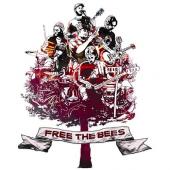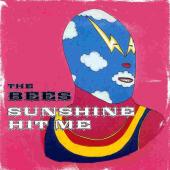The Bees started out as the duo of Paul Butler and Aaron Fletcher, both of whom hailed from the Isle of Wight. They recorded their debut album, Sunshine Hit Me, in a home studio in a shed in Butler's parents' garden. Butler and Fletcher, both multi-instrumentalists and singers, were avid record collectors and, even more so, avid record listeners, with interests that extend back to the roots of British rock and into American soul, as well as a multitude of other directions. Sunshine Hit Me, released by We Love You as a U.K.
-only issue and credited to the Bees, reflected their interests and listening, melding '60s freakbeat and psychedelic sensibilities with '70s power pop, and got nominated for a Mercury Music Prize, for Best in British Music, in 2002. That nomination, and the album's success, led to the assembly of an actual band, and a couple of years of steady touring. And when the smoke cleared, the Bees were officially a sextet instead of a duo, with everyone writing songs and switching off on instruments (with Fletcher doing their lyrics). And instead of recording their second album in the Butler family garden shed, as they'd intended, Butler's stint producing another act at EMI's legendary studios ended up with the group booking three weeks there. The six members — Kris Birkin, Michael Clevitt, Tim Parkin, Warren Hampshire, and Butler and Fletcher (all of them except lead guitarist Birkin multi-instrumentalists) — created Free the Bees (they were by then recording as A Band of Bees). Released in the summer of 2004 on EMI's Virgin Records imprint, the album got rave reviews in England and became a serious cult hit in the United States, working its way into better stores and eliciting positive reviews from critics who normally would never have known about it. The group's work has been variously compared to that of the Small Faces (and the Faces), the Beatles, the Byrds, the Kinks, the Temptations, and early Pink Floyd, with some other interesting permutations. For example, Butler counts his own influences as Lee Perry, King Tubby, and Fela Kuti. For all of their seeming '60s influences, the group comes off as startlingly contemporary, just willing to reach back to artists and styles they admire when it suits them which, so far (as of 2004), is often.









